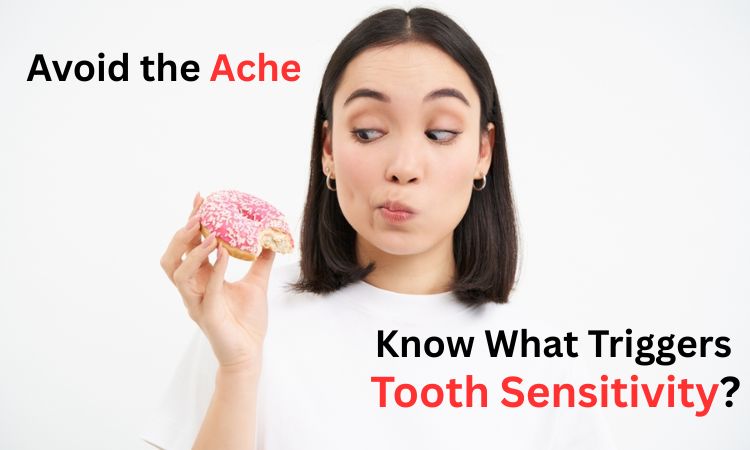Getting a dental filling is a common and effective solution to treat cavities and restore tooth structure. However, for some people, sensitivity may linger even weeks or months after the procedure. While mild discomfort can be a normal part of the healing process, certain foods and habits can worsen tooth sensitivity after a filling—prolonging the issue or even causing new complications.
At Cosmo Smiles Dental, we understand how frustrating this can be. This blog will walk you through the common culprits and habits to avoid so you can protect your dental work and find lasting relief.
Understanding Tooth Sensitivity After a Filling
Tooth sensitivity following a filling can result from a variety of factors—ranging from the filling type and depth of the cavity to nerve irritation or even an incorrect bite. While these issues often resolve with time, your dietary choices and daily habits play a crucial role in the recovery process.
Foods That Can Worsen Tooth Sensitivity
1. Extremely Hot or Cold Beverages
Hot coffee or iced drinks can trigger sharp sensations in teeth after a filling. These temperature extremes cause contraction and expansion in the dental material, affecting the nerve underneath.
Tip: Drink lukewarm beverages during recovery to minimize irritation.
2. Acidic Foods and Drinks
Citrus fruits, tomatoes, soda, and vinegar-based dressings can erode enamel and aggravate sensitive areas.
Why it matters: Acidity weakens the tooth structure and may irritate the area around your filling, especially if dentin is exposed.
3. Sugary Snacks and Candies
Sugar feeds bacteria in the mouth, which can lead to plaque buildup and further enamel damage.
Smart swaps: Choose sugar-free gum or snacks low in processed sugar to protect your dental work.
4. Sticky or Chewy Foods
Caramel, taffy, or even dried fruits can tug at new fillings, especially if they haven’t fully set or are loosely bonded.
Risk: These can potentially dislodge or weaken the filling, increasing discomfort or leading to further dental work.
5. Hard and Crunchy Snacks
Nuts, popcorn, and hard candy may crack the edges of fillings or irritate the surrounding enamel.
Advice: Opt for softer alternatives until sensitivity improves.
Everyday Habits That Contribute to Sensitivity
1. Brushing Too Hard
Aggressive brushing can wear away enamel and irritate gums, making your teeth more sensitive—especially near a recent filling.
Solution: Opt for a toothbrush featuring soft bristles and apply gentle, circular motions while brushing.
2. Using Whitening Toothpaste or Strips
Many whitening products contain peroxide or abrasives that can irritate sensitive teeth and disrupt newly treated areas.
Pro tip: Use toothpaste specially formulated for sensitive teeth.
3. Teeth Grinding or Clenching
Bruxism (grinding your teeth), especially at night, can put pressure on filled teeth and worsen sensitivity over time.
Prevention: Consider a custom night guard to protect your teeth while sleeping.
4. Smoking or Vaping
Tobacco use not only stains teeth but also slows down oral healing and increases the risk of gum disease, which can intensify sensitivity.
How to Manage Sensitivity After a Filling
- Use fluoride mouthwash to strengthen enamel.
- Avoid extreme temperatures in food and beverages.
- Stick to a gentle oral hygiene routine.
- If you experience ongoing sensitivity for several weeks, it is important to follow up with your dentist.
At Cosmo Smiles Dental, we offer expert guidance and post-filling care to help you enjoy a smooth recovery and lasting comfort.
Final Thoughts
Tooth sensitivity after a filling is common—but manageable. By being mindful of your diet and everyday habits, you can significantly reduce discomfort and support a faster healing process. If sensitivity lingers or worsens, don’t ignore it. Prompt care from a trusted dental provider like Cosmo Smiles Dental can help prevent further complications and ensure your smile stays strong and healthy.
FAQs
1: Is it normal to have sensitivity months after a filling?
Yes, some patients may experience lingering sensitivity for a few months, especially if the filling is deep or close to a nerve. If the pain intensifies or lasts beyond 3–4 months, consult your dentist for an evaluation.
2: Can what I eat really affect my tooth sensitivity after a filling?
Absolutely. Certain foods—especially hot, cold, acidic, or sticky items—can trigger or worsen sensitivity in newly filled teeth.
3: How long should I avoid hard or sticky foods after a filling?
It’s generally recommended to avoid them for at least a few days, but if sensitivity persists, it’s best to avoid these foods until your dentist confirms full recovery.
4: Will switching toothpaste help with sensitivity?
Yes. Toothpaste designed for sensitive teeth can help block pain signals and reduce discomfort over time.
5: What if my filling feels high or uneven when I bite?
An uneven bite can lead to pressure on the filled tooth, causing pain. Your dentist can easily adjust the filling to fix this issue.
